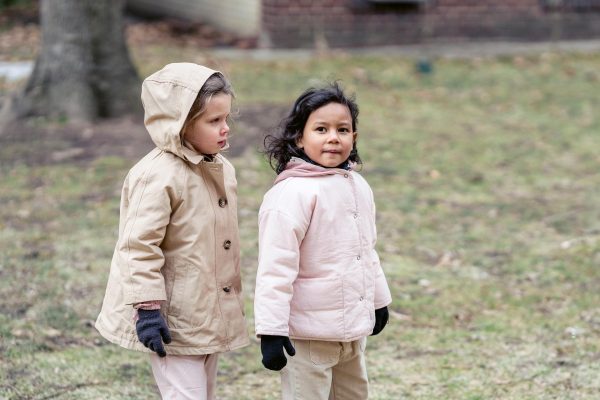Cold Weather and Bedwetting

As temperatures drop and the chilly months of winter set in, many parents notice an increase in bedwetting incidents among children. While bedwetting (or nocturnal enuresis) is a common issue that affects children worldwide, the colder weather may exacerbate the problem for some. Understanding the connection between cold weather and bedwetting can help parents manage the situation with greater ease and compassion.
Cold Weather and Bedwetting: What’s the Connection?
- Temperature and Bladder Sensitivity Colder temperatures can have a direct impact on bladder function. Cold weather causes the body to work harder to regulate temperature, which can lead to changes in urine production. When the body gets cold, it redirects blood flow from the skin to internal organs to maintain warmth, including the bladder. This, combined with reduced sweating during colder months, may increase urine production at night, making it harder for children to stay dry while sleeping.
- Changes in Fluid Intake During winter, children may drink more warm fluids like tea or cocoa, often closer to bedtime. Although these beverages may be comforting, the increase in fluid intake, especially in the evening, can contribute to bedwetting. Additionally, children may drink less water during the day, which can cause the bladder to become overstimulated at night when fluids catch up.
- Heavier Sleep Cycles Many children experience deeper sleep in the colder months, as the body feels more inclined to hibernate during longer, darker nights. However, this can be a double-edged sword for bedwetting, as heavier sleep makes it more difficult for the brain to signal the bladder to wake the child when it’s full.
- Stress and Routine Disruptions The colder months also coincide with holidays, travel, and changes in routine, which can increase stress levels in children. Stress is a known contributor to bedwetting, particularly in younger children who may be struggling with changes in their environment.
Tips for Managing Cold-Weather Bedwetting
- Encourage Bathroom Breaks Make sure your child goes to the bathroom before bed. This simple routine can significantly reduce nighttime accidents.
- Keep Them Warm Provide your child with extra blankets or warmer pajamas to ensure they stay cozy without their body compensating for the cold by producing more urine.
- Create a Stress-Free Sleep Environment Consistent bedtime routines are essential. Create a calming routine that helps reduce anxiety and signals bedtime. Avoid disruptions that might increase stress, like watching TV or playing with electronics too close to bedtime.
- Use Bedwetting Alarms If bedwetting persists, a bedwetting alarm can be an effective tool. These alarms are designed to wake the child as soon as they begin to wet, helping them develop a better connection between their bladder signals and waking up.
Bedwetting during the colder months is often a normal part of childhood development, but understanding the connection between temperature, routine, and bladder control can help parents address it more effectively. By creating a supportive, stress-free environment and implementing a few simple strategies, most children will outgrow bedwetting with time.
>> Visit our FAQ section for more information about bedwetting treatment
>> To learn more about our plans and pricing click here
Search
Recent Posts
- Summer Sleepovers and Bedwetting: A Parent’s Guide to Confidence and Comfort
- Hot Weather and Bedwetting in Children: What You Should Know
- Springtime and Bedwetting in Children: What’s the Connection?
- Understanding Restraint Mechanisms and Bedwetting in Children
- Giggling and Bedwetting: Why Laughter Sometimes Leads to Leaks
Categories
- ADHD
- adult bedwetting
- All about Bedwetting
- bed wetting
- bed wetting alarms
- bed wetting treatment
- bedwetting
- bedwetting blog
- bedwetting causes
- Bedwetting Dictionary
- bedwetting medication
- bedwetting solution
- bedwetting solutions
- bedwetting therapee
- bedwetting therapy
- diurnal enuresis
- dribbling
- How to stop bed wetting
- nappies
- News
- primary enuresis
- progress chart
- secondary enuresis
- sleep
- sleepovers
- The Solution – Therapee
Tags
Archives
- June 2025
- May 2025
- March 2025
- November 2024
- October 2024
- September 2024
- August 2024
- May 2024
- April 2024
- March 2024
- February 2024
- January 2024
- December 2023
- September 2023
- August 2023
- July 2023
- June 2023
- May 2023
- April 2023
- March 2023
- February 2023
- January 2023
- December 2022
- November 2022
- October 2022
- September 2022
- August 2022
- July 2022
- June 2022
- May 2022
- April 2022
- March 2022
- February 2022
- January 2022
- December 2021
- November 2021
- October 2021
- September 2021
- August 2021
- July 2021
- February 2015
- January 2015
- December 2014
- November 2014
- October 2014
- September 2014
- August 2014
- July 2014
- June 2014
- May 2014
- April 2014
- March 2014







